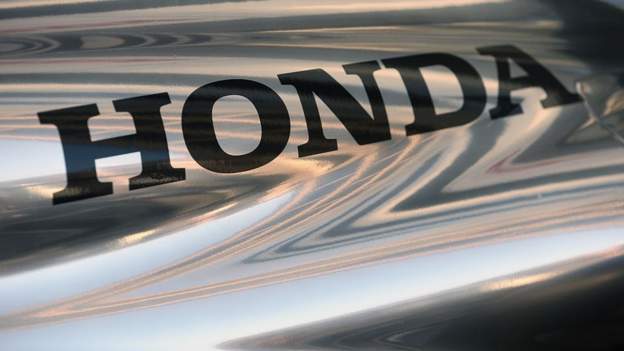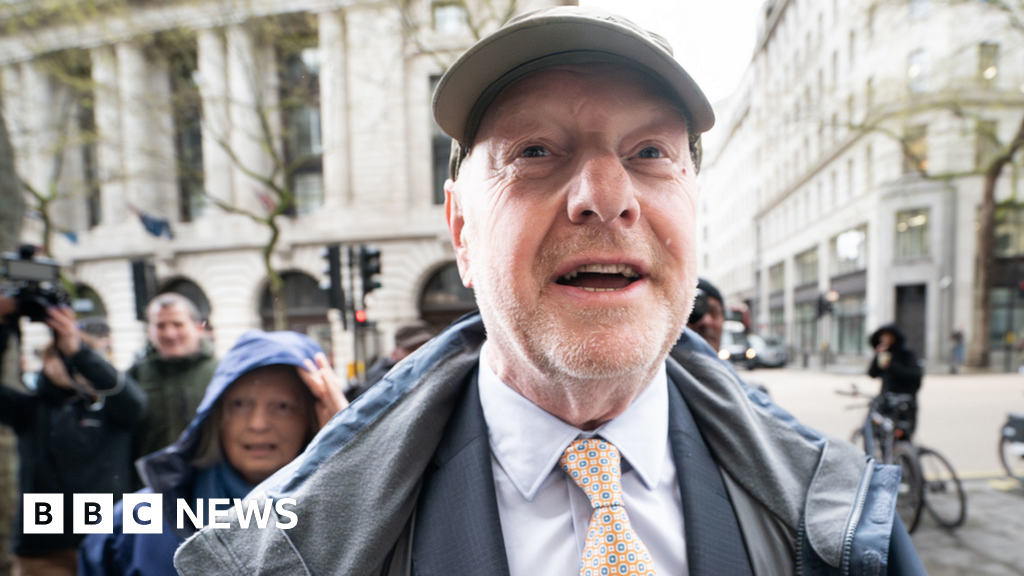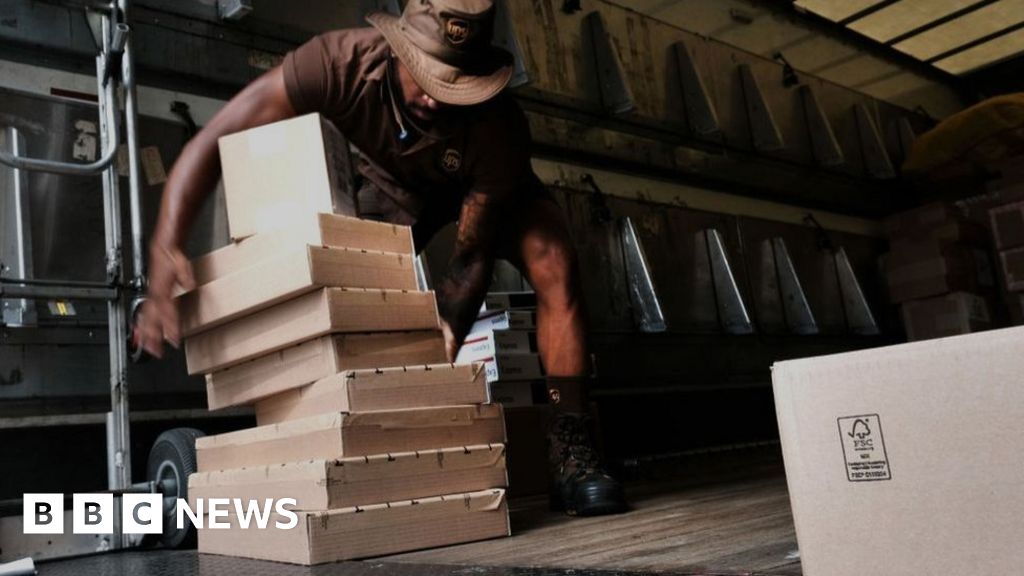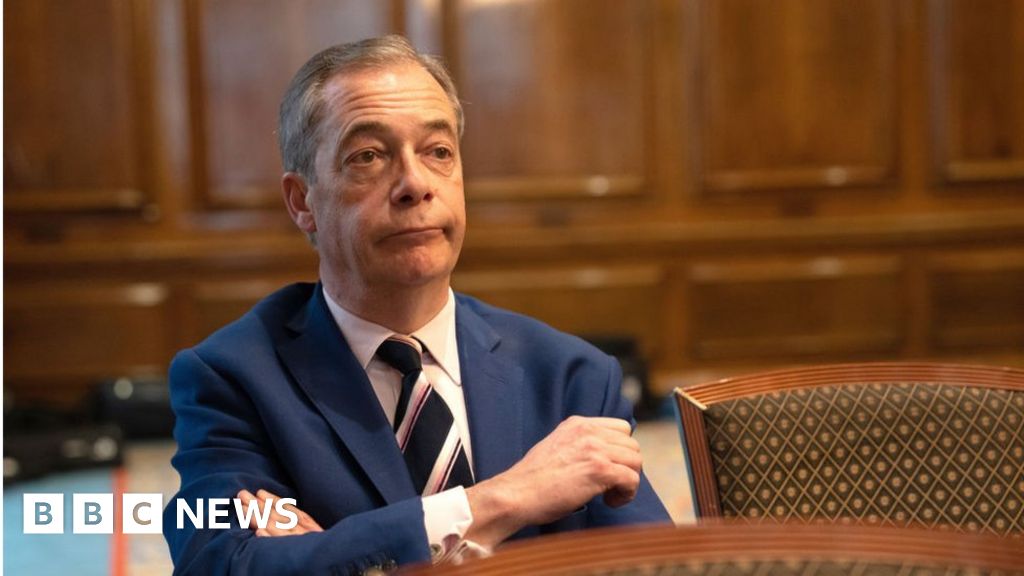[ad_1]
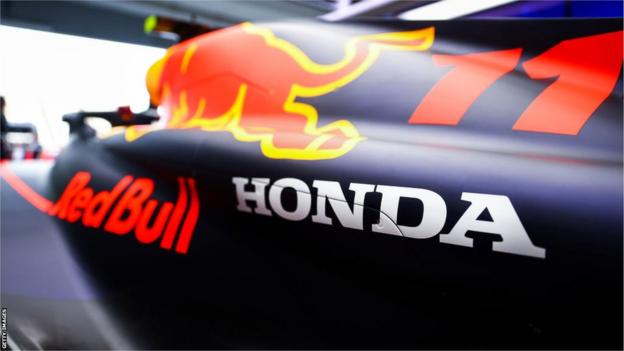
Honda is to return to Formula 1 in a formal capacity in 2026 as engine partner for the Aston Martin team.
The company officially pulled out of F1 at the end of 2021 but its engines are still used by the two Red Bull teams and are called Hondas again in 2023.
Honda said on Wednesday that F1’s pursuit of carbon-neutrality by 2030 was the “key factor” behind its decision to re-enter officially.
New rules for 2026 will increase the electrical performance of F1 engines.
The sport’s governing body the FIA is mandating the use of fully sustainable synthetic fuels at the same time.
Honda Racing Corporation president Koji Watanabe said: “In pursuit of its goal in achieving carbon neutrality by 2030, starting in the 2026 season the FIA will mandate the use of 100% carbon-neutral fuel and the deployment of electrical power will be increased significantly by three times from the current regulations.
“With this massive increase in electrical power, the key to winning in F1 will be a compact, lightweight and high-power motor with a high-performance battery that is capable of swiftly handling high power output as well as the energy-management technology.
“We believe this know-how gained from this new challenge has the potential to be applied directly to a future mass-production electric vehicle.”
What is behind Honda’s change of approach?
F1 has used hybrid engines since 2014 but the new rules will make significant changes in their layout.
The biggest is the removal of the MGU-H, the part of the hybrid system that recovers energy from the turbo, and a significant increase in the proportion of hybrid power in the engine’s power output.
Watanabe said: “Currently, the electrical power accounts for 20% or less compared to the internal combustion engine.
“But the new regulations require about 50% or more of electrification, which moves even further toward electrification and I believe the technology for electrification will be useful for us in producing vehicles in the future.”
The use of carbon-neutral fuels and their integration into the engine, he said, also “matches with Honda’s direction”.
Watanabe said the extension of F1’s cost cap to cover engines was also a factor in the decision as it made “long-term and continuous participation in F1 easier”.
Why not continue with Red Bull?
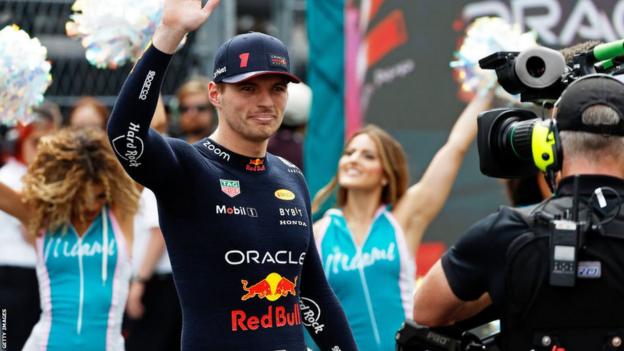
Honda has won the past two drivers’ championships with Red Bull and Max Verstappen and added the constructors’ title last season. The pairing is well on course to repeat its title double in 2023. Red Bull have dominated the start of the season, winning all five races so far.
Red Bull has decided to build its own engine for 2026, and has formed a partnership with US giant Ford to invest in and badge the power-unit.
Aston Martin, who finished seventh in the championship last year, have made a huge step forward in competitiveness in 2023 and lie second in the constructors’ championship behind Red Bull before this weekend’s Monaco Grand Prix.
Their driver Fernando Alonso is third in the drivers’ championship, behind Verstappen and his team-mate Sergio Perez.
Aston Martin’s progress has come after a major investment and restructuring programme in the past five years that includes the building of a new factory, which is scheduled to open before the end of this month. A new wind tunnel is also under construction and set for completion late in 2024.
Watanabe said that Honda and Aston Martin’s F1 team “share the same spirit”.
Martin Whitmarsh, the group chief executive officer of Aston Martin Performance Technologies, said: “Aston Martin is building a team to win in F1. We have been recruiting the right people and investing in the required facilities and developing the right culture and processes to win.
“To partner a global motorsport titan like Honda is an extremely exciting and important further step for the team. Both organisations share the same relentless ambition to succeed on track. We are very proud, honoured and grateful to put in place this partnership.”
Whitmarsh, who was instrumental in bringing about Honda’s return to F1 in 2015 when he was chief executive and team principal of McLaren, added that “2026 will require full integration of chassis and power-unit that only a full works team delivers”.
He added: “It’s very clear from what we’ve seen from Honda and our recent learnings, they have a huge passion, they want to win, that is what they want to do, and that is our goal. We are already confident this is going be a fantastic partnership for the future.”
The partnership will mean the end of Aston Martin’s arrangement with Mercedes, from whom the team buy a large part of the rear of their car, including engine, gearbox and suspension.
Whitmarsh admitted that taking on the manufacture of the gearbox and suspension was “a big challenge but an essential one for us in stepping up”.
Watanabe said that Honda had no plans to supply any other teams “for the moment”.
What about drivers?
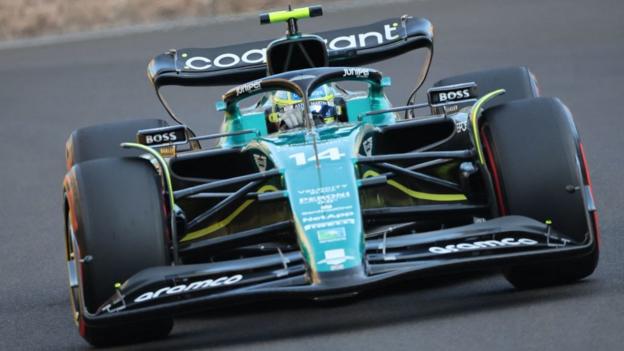
Alonso joined McLaren in 2015 to be part of the Honda project but the team and engine company split after three uncompetitive years. In that time, Alonso’s relationship with Honda frayed, partly because of some public criticisms of the engine by the two-time champion.
But Watanabe said that driver choices would be “fully up to the team” and Honda had “no objection” to working with Alonso again.
Alonso is in the first season of a two-year deal with Aston Martin. He turns 42 in July and would be 44 by the start of Honda’s partnership with the team.
Whitmarsh said: “Honda are a very great partner for us. Fernando sees that. Probably 2026 is outside his planning horizon at the moment. We have to give him a car that can consistently win races.
“We have made a reasonable step forward. We are not yet where we need to be but we will get stronger. We will have a discussion before 2026, I’m sure, about where Fernando’s future lies.
“I hope he’ll be around for a number of years and it’d be great if he’s as fit and competitive as he is today. Then it would be fantastic to have him in the car in 2026 as well.”


[ad_2]
Source link

